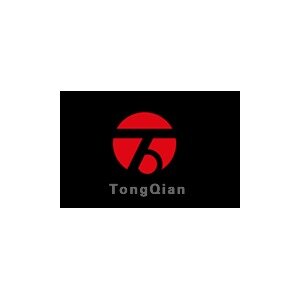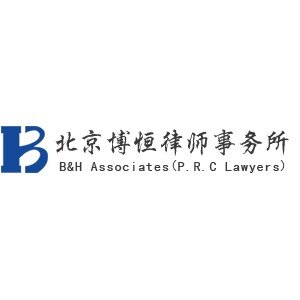Best Brokerage Lawyers in China
Share your needs with us, get contacted by law firms.
Free. Takes 2 min.
Free Guide to Hiring a Real Estate Lawyer
Or refine your search by selecting a city:
List of the best lawyers in China
About Brokerage Law in China
Brokerage law in China governs the activities of brokers and agents who facilitate transactions of various commodities, services, or financial instruments between buyers and sellers. The laws are designed to ensure transparency, fairness, and efficiency in the dealings of brokerage firms and their clients. These laws cover a wide range of sectors, including real estate, securities, insurance, and commodities trading. Brokerage activities are regulated by several governmental bodies, including the China Securities Regulatory Commission (CSRC) for securities brokers and the Ministry of Housing and Urban-Rural Development for real estate brokers.
Why You May Need a Lawyer
Engaging in brokerage activities in China involves navigating a complex legal landscape. You may need a lawyer in various situations, such as:
- Negotiating or drafting brokerage contracts and agreements.
- Addressing disputes over brokerage fees or commissions.
- Ensuring compliance with local laws and regulations to avoid penalties.
- Handling issues related to property transactions or securities trading practices.
- Litigating cases of alleged fraud or misrepresentation by brokers.
- Advising on the establishment and operation of a brokerage business in China.
Local Laws Overview
China's legal framework for brokerage is comprised of several key aspects:
- Regulatory Compliance: Brokers are required to obtain the necessary licenses and approvals from the relevant regulatory authorities.
- Contractual Obligations: The law mandates clear and enforceable contracts between brokers and their clients, specifying the duties and obligations of each party.
- Transparency and Disclosure: Brokers must ensure accurate and full disclosure of information related to transactions.
- Anti-Fraud Measures: Strict penalties are in place for fraudulent activities, emphasizing the importance of integrity in brokerage practices.
- Consumer Protection: Laws are enacted to protect consumers from unfair practices and ensure their rights in brokerage transactions.
Frequently Asked Questions
What is the role of a broker in China?
Brokers in China act as intermediaries to facilitate transactions between buyers and sellers. They are responsible for negotiating terms, drafting contracts, and ensuring compliance with applicable laws.
Are there specific licenses required for brokers in China?
Yes, brokers must obtain the relevant licenses for their field, such as securities brokers needing a license from the China Securities Regulatory Commission.
How are brokerage commissions regulated in China?
Commissions are typically subject to contractual agreement between the broker and the client, but they must adhere to industry standards and any applicable legal limits.
What legal recourse is available in case of a dispute with a broker?
Disputes may be resolved through mediation, arbitration, or litigation, depending on the contractual agreement and the specific circumstances of the case.
What protections are in place for consumers in brokerage transactions?
Laws require transparent and fair dealings, full disclosure of material information, and severe penalties for fraud to protect consumers in brokerage transactions.
How are brokerage contracts enforced in China?
Contracts are enforceable through the Chinese legal system, requiring clear articulation of terms and compliance with statutory requirements.
Can foreign entities operate as brokers in China?
Foreign entities can operate as brokers, typically through joint ventures or subsidiaries, but must comply with local regulatory requirements and obtain necessary approvals.
What are the common legal challenges faced by brokerage firms in China?
Common challenges include regulatory compliance, managing client relationships, dispute resolution, and adapting to changes in the legal and economic environment.
How can a lawyer assist in brokerage transactions in China?
A lawyer can provide assistance in contract drafting, dispute resolution, regulatory compliance, risk management, and legal advice on market practices.
What is the importance of due diligence in brokerage activities?
Due diligence helps in assessing the credibility, legal standing, and reliability of the parties involved, ensuring a safe and compliant transaction process.
Additional Resources
For additional information and assistance, you can refer to:
- China Securities Regulatory Commission (CSRC): Oversees securities brokerage and trading.
- Ministry of Housing and Urban-Rural Development: Provides regulations for the real estate brokerage industry.
- Local law firms: Specialize in commercial law and brokerage transactions.
- Industry associations: Such as the China Association of Stockbrokers, which can offer guidance and best practices.
Next Steps
If you require legal assistance in brokerage matters in China, consider taking the following steps:
- Consult with a lawyer specializing in brokerage law to understand your legal options and rights.
- Gather all relevant documentation, contracts, and correspondence related to your issue.
- Engage in preliminary discussions or mediation to attempt resolution before escalating to formal legal proceedings.
- Ensure full compliance with regulatory requirements to prevent future legal complications.
Lawzana helps you find the best lawyers and law firms in China through a curated and pre-screened list of qualified legal professionals. Our platform offers rankings and detailed profiles of attorneys and law firms, allowing you to compare based on practice areas, including Brokerage, experience, and client feedback.
Each profile includes a description of the firm's areas of practice, client reviews, team members and partners, year of establishment, spoken languages, office locations, contact information, social media presence, and any published articles or resources. Most firms on our platform speak English and are experienced in both local and international legal matters.
Get a quote from top-rated law firms in China — quickly, securely, and without unnecessary hassle.
Disclaimer:
The information provided on this page is for general informational purposes only and does not constitute legal advice. While we strive to ensure the accuracy and relevance of the content, legal information may change over time, and interpretations of the law can vary. You should always consult with a qualified legal professional for advice specific to your situation.
We disclaim all liability for actions taken or not taken based on the content of this page. If you believe any information is incorrect or outdated, please contact us, and we will review and update it where appropriate.
Browse brokerage law firms by city in China
Refine your search by selecting a city.














